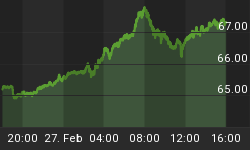Joel Kotkin writing for New Geography hits the nail smack on the head with his assessment Sick Man of Europe is Europe.
Throughout the continent, public support for a united Europe fell sharply last year. Opposition to greater integration has emerged, with anti-EU parties gaining support in countries as diverse as the United Kingdom, Greece, Germany and France.
The new reality is epitomized by France's ascendant far-right political figure, Marine Le Pen, who is now leading in many polls to win the next presidential election.
These attitudes suggest that the EU could be devolving from a nascent super-state to something that increasingly resembles the Holy Roman Empire, a fragmented landscape of small, unimportant states wrapped in a unitary, but ephemeral crepe. This challenges the view of some Americans, particularly but not only on the left, who see Europe as a role model for the U.S.
Some pundits, such as Paul Krugman, routinely describe Europe's approach to economic, environment and social policy as more enlightened than America's. Wherever possible, progressives push for European-style action in areas such as curbing carbon emissions and rapidly converting to "green" energy.
Several years ago Germany and the Netherlands were exemplars as opposed to the much-disdained PIGS (Portugal, Italy, Greece and Spain). But German growth rates have plummeted, going negative in the last quarter, along with France and Italy. More stagnation is likely as energy costs surge and key export markets, notably in Russia and China, begin to contract. Today, the "sick man" of Europe is not any one country, or collection of countries; the "sick man of Europe" is Europe.
Europe's poor economy stems in large part from policy. The strong welfare state so admired by progressives here has also made Europe a very expensive place to do business. High taxes and welfare costs, long tolerable in an efficient economy like Germany, have a way of catching up with companies and countries. This has been particularly notable after the financial crisis; since 2008 the unemployment rate has shot up 5 percentage points while dropping steadily in the Untied States.
All this suggests that Americans would do better than look to Europe for future solutions to our own problems. However attractive the European model may seem to our pundit class, the reality on the ground shows something more to be avoided than embraced.
Blame the Socialists, Progressives, Greens, and the Euro
The socialists ruined France and Italy. And the Euro which was supposed to be a uniter has been anything but.
There is more bickering than ever before on what constitutes sound fiscal policy. Germany wants one thing, France and Italy another. Some countries want something in between and others waver back and forth.
More importantly, what the people want, is not what the politicians want. The result has been the rise of Marine Le Pen in France, Beppe Grillo in Italy, and Golden Dawn in Greece. Unstable governments and alliances exist in several countries.
Energy costs have soared in Germany thanks to Green policies. German businesses pay twice as much for energy as US counterparts.
For example, a typical medium-sized German industrial company pays 9.14 euro cents per kilowatt hour compared with 4.82 cents/kWh in Texas, according to research carried out by Ecofys, a consultancy, and the Fraunhofer Institute for Systems and Innovation Research.
The founders of the Euro project thought fiscal matters would unify over time. Instead, politics and policies diverged.
The fact remains: No currency union in history that did not also have a fiscal union has ever survived.
With horrendous demographics in most of Europe, impossible to untangle socialist promises in the "Club-Med" countries and France, and no hope for a sensible fiscal union, the situation is bleak.
My take: A Disruptive Eurozone Breakup Awaits.















